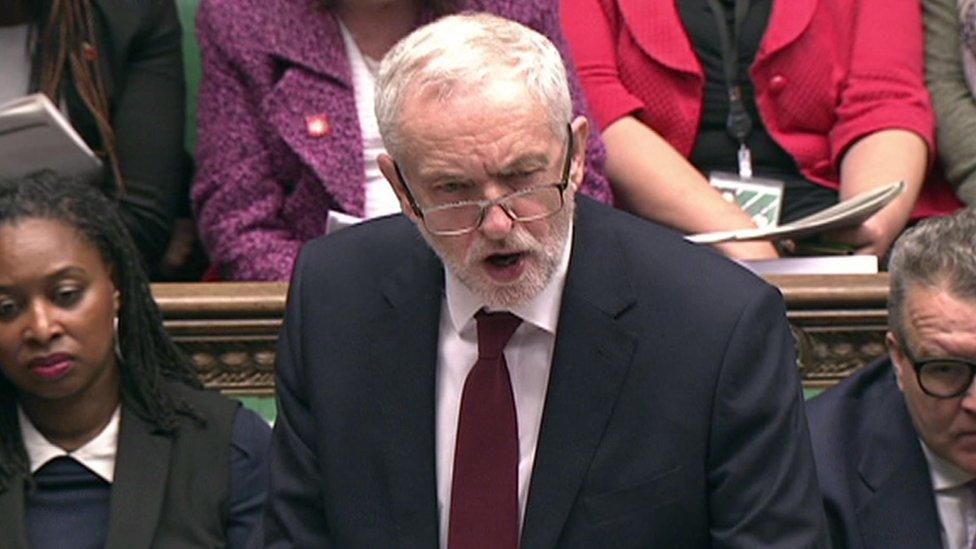Universal credit: Thousands to get less money over festive season
- Published

The Department of Work and Pensions has confirmed that around 25,000 universal credit claimants could see their entitlement reduced over Christmas.
Most will get some benefit but some will lose their entitlement altogether.
It's an issue which affects some universal credit claimants who are paid weekly.
Those that have five pay packets within their Christmas income assessment period, will see their benefit entitlement reduced.
Ministers say this is how universal credit is meant to work - with benefit levels reducing as earnings rise and increasing as earnings fall. In this way it is designed to "make work pay."
But debt charities say this variability makes budgeting difficult for families with little financial security.
The effect is caused because universal credit levels are based on monthly earnings. The so-called income assessment is calculated over 30 or 31 days - meaning that in four of those periods each year, claimants will have five pay-days. Exactly when will depend on when they first applied for the benefit.
The DWP has confirmed, up to 25,000 could be affected by this over Christmas.
Universal credit merges six benefits for working-age people into one new payment, which is reduced gradually as you earn more.
The Department for Work and Pensions warns on its website, external that people who are paid five times in a month may have an income that is too high to qualify for the benefit in that period.
It says people will be notified if this happens and told to reapply for the benefit the following month.
Other people who are paid fives times in a month but do not earn enough for universal credit to end will have their benefit reduced.
Kayley Hignell, from Citizens Advice, said the way universal credit was calculated brought some benefits but also "significant budget challenges".
She said: "The key thing here is about communication.
"People need to know that if they're getting extra income in one month... it may stop their universal credit payment, and that they then subsequently need to put in a new claim to make sure that they continue to get those payments.
"If you've got extra money in the month, don't necessarily bank on the fact that your universal credit is going to stay the same, because it could change it either in this month or the next."
Rolled out
The Department for Work and Pensions said not all those paid weekly would get a reduced payment in December because it would depend on the date on which a claimant's universal credit was paid.
It also said the payments balanced out, because claimants entitled to more would receive it in the following month.
It said those who reapplied for the benefits would not have to submit new forms and would have their current claims restarted.
The DWP said: "For the vast majority of people in work, they will continue to get paid universal credit in a five-week month.
"Universal credit adjusts automatically to people's wages.
"When someone's wages take them over the UC threshold, they can get universal credit the next month, and this process is working."
Universal credit is being rolled out across the UK in stages, but its implementation, particularly the six-week wait to receive the benefit, has caused controversy.
This week Labour leader Jeremy Corbyn told Prime Minister's Questions that hundreds of families have been issued with eviction notices by a landlord concerned about the impact of universal credit.
Correction and update 1 December 2017: This article has been amended to give the correct number of Universal Credit claimants who could see their entitlement reduced over Christmas and updated to add that this figure has been confirmed by the Department of Work and Pensions.
- Published15 November 2017

- Published13 May 2024

- Published17 November 2017
